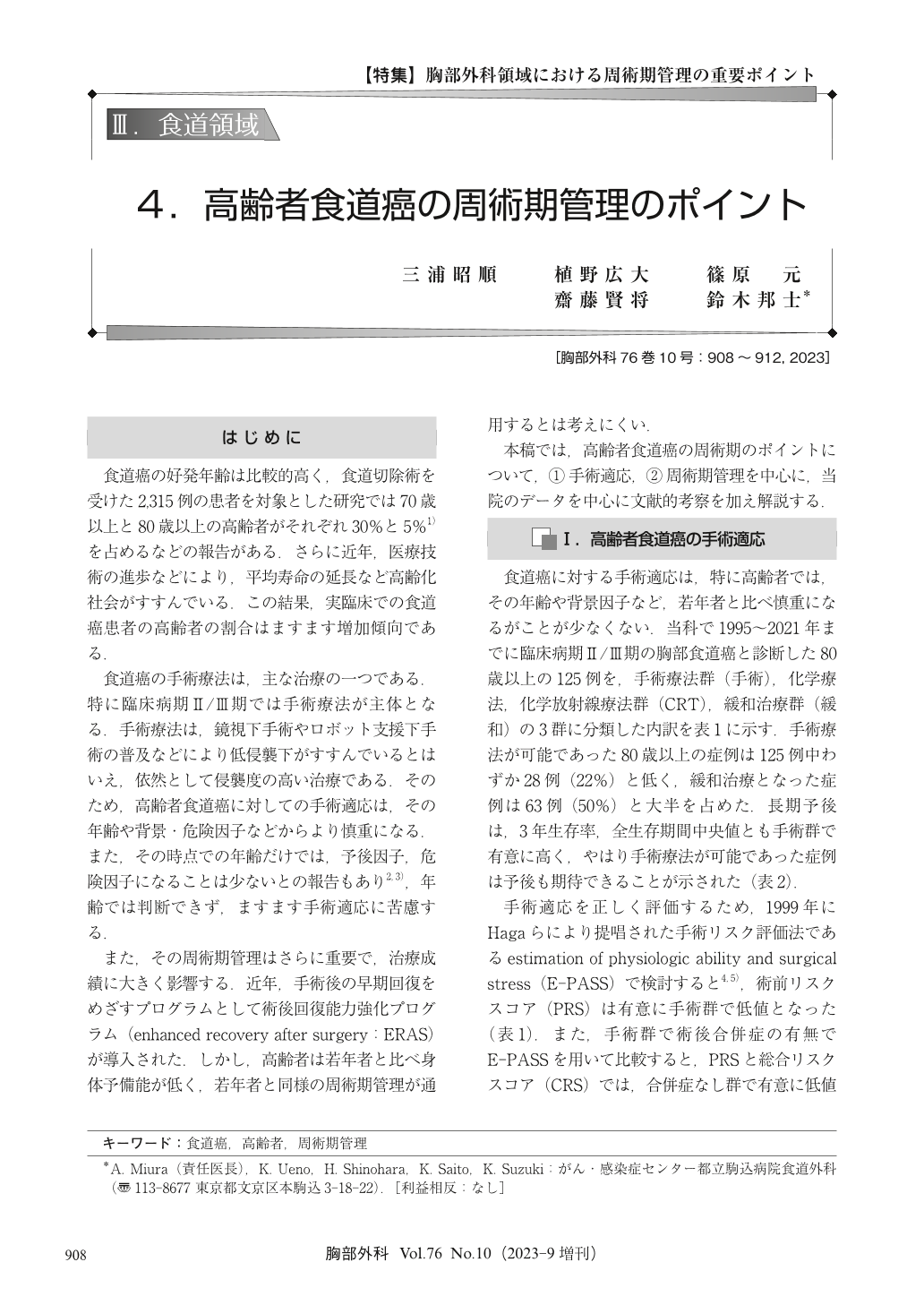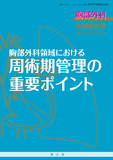Japanese
English
- 有料閲覧
- Abstract 文献概要
- 1ページ目 Look Inside
- 参考文献 Reference
食道癌の好発年齢は比較的高く,食道切除術を受けた2,315例の患者を対象とした研究では70歳以上と80歳以上の高齢者がそれぞれ30%と5%1)を占めるなどの報告がある.さらに近年,医療技術の進歩などにより,平均寿命の延長など高齢化社会がすすんでいる.この結果,実臨床での食道癌患者の高齢者の割合はますます増加傾向である.
Esophagectomy is a highly invasive surgery for elderly patients. The incidence of esophageal cancer is relatively high among the aging population in Japan. Therefore, it is crucial to determine the indications for esophagectomy and implement effective pre- and post-operative management strategies, considering the reduced physical function often observed in elderly patients. In our study, approximately 20% of patients with stageⅡ/Ⅲ esophageal cancer underwent esophagectomy. When we assessed these patients using the estimation of physiologic ability and surgical stress (E-PASS) scoring system, we found that the E-PASS score was significantly lower in the group that underwent surgery compared to those who received chemotherapy, radiation, or palliative treatment. Evaluating the risk of esophagectomy using tools such as E-PASS or others is crucial in establishing appropriate indications and ensuring patient safety. Regarding the perioperative period, our study revealed that the complication rate did not differ significantly between patients aged 74 years or younger and those aged 75 years or older. However, patients aged 75 years or older experienced significantly longer total and post-hospital stays. This prolonged postoperative stay in elderly patients can be attributed to a decline in activities of daily living (ADL) following esophagectomy, primarily due to their lower physical function. These results emphasize the importance of considering the potential decline in ADL resulting from lower physical function in elderly patients during perioperative management. Establishing multidisciplinary perioperative teams and rehabilitation programs can enhance the quality of life for patients after esophagectomy.

© Nankodo Co., Ltd., 2023


